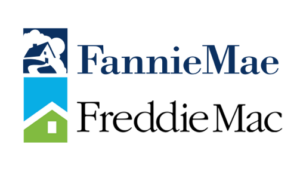So, What is a Conventional Loan?
You’re diving into the world of home buying, and probably asking yourself the question “what is a conventional loan?” But what exactly is that, and how does it stack up against other types of mortgages? I’m a seasoned mortgage loan officer here in Florida, so I break it down for you in (somewhat) simple terms.
So, picture this: you’re ready to buy your dream home, as a result you need a loan to make it happen. A conventional loan is one of the most common types of mortgages out there (about 53.2% of loans in 2023). Most simply, it is a loan that isn’t insured or guaranteed by the government (think FHA or VA loans). It is, however, backed by “government sponsored” entities. They are known as “Fannie Mae”, and “Freddie Mac”. They are both technically corporations but they are supported by the government with funding to make sure that loans are available.

How Does it Work?
Now, let’s talk mechanics. Again, when asking “What is a conventional loan”, it still means you borrow money from a lender to buy a home. Then you pay it back over time with interest. Simple, right? Some agree they are the most simple type of loan in how they operate.
Conventional loans may also allow you to choose between fixed or adjustable interest rates. This choice can give you flexibility in how you manage your payments.
Differences from Other Loan Types
Here’s where things get interesting. Conventional loans differ from government-backed loans (and most of the rest are government backed) in a few key ways, as follows:
1. Down Payment
Conventional loans often require a higher down payment—usually around 5% to 20% of the home’s purchase price. Unlike FHA loans, which can require as little as 3.5% down. Now, I know what you’re thinking: “Yikes, that’s a lot of cash!” But don’t fret just yet. A higher down payment can actually work in your favor by reducing your monthly mortgage payments and even helping you snag a better interest rate. Yes a conventional loan under certain circumstances will allow 3% down, but often times the FHA option may have the superior terms in those cases.
2. Credit Score
Your credit score plays a big role in the mortgage game, and conventional loans are no exception. Government-backed loans are often more lenient with credit requirements. Conventional loans typically require a higher credit score—somewhere in the ballpark of 620 to 700 or above. Also the conventional loan rate will be more sensitive to the credit score.
If you have a higher score, your rate may be better with the conventional loan. However a lower score may mean the FHA option has a better rate. But hey, don’t let that scare you off. If your credit score isn’t quite up to snuff, there are plenty of ways to improve it over time, like paying off debt and making timely payments.
3. Private Mortgage Insurance (PMI)
Ah, PMI—the bane of many homebuyers’ existence. However it is the PMI that provides for down payments of less than 20%! With conventional loans, private mortgage insurance will be required if your down payment is less than 20%. This insurance protects the lender in case you default on your loan. But guess what? Once you’ve built up enough equity in your home (usually around 20% or more), you can kiss that PMI goodbye. Then it’s time to put those extra dollars back in your pocket.
4. Property Standards
Another thing to keep in mind is property standards. While government-backed loans may have stricter requirements when it comes to the condition of the home you’re buying, conventional loans tend to be a bit more flexible in this department. That fixer-upper you’ve been eyeing? With a conventional loan, you may have more leeway to make it your own without jumping through too many hoops.
5. What is a Conventional Loan ‘s Loan Limits?
Last but not least, let’s talk loan limits. Conventional loans have what’s known as “conforming loan limits,” which are set by the Federal Housing Finance Agency (FHFA) and vary depending on where you live. In 2024 the confoming loan limit is $766,550 for a single family home. These limits determine the maximum amount you can borrow with a conventional loan without venturing into jumbo loan territory. So, if you’re eyeing a pricey piece of Florida real estate, be sure to check the conforming loan limits for your area.
Conclusion about What is a Conventional Loan
And there you have it, folks: the lowdown on conventional loans in Florida. While they may not be the right fit for everyone, these loans offer a tried-and-true path to homeownership for many Floridians. So whether you’re dreaming of a cozy cottage in Key West or a sleek condo in downtown Miami, don’t be afraid to explore your options and find the loan that’s right for you. After all, there’s no place like home—especially when it’s right here in the Sunshine State.
Ready to know more? Reach out to me today Learn more about how I can help you find the perfect loan, and it’s a no obligation consultation.
Taylor@CompassMortgageLLC.com is my email address. Or call me directly 813-766-1048.
Continue visiting my blog, or bookmark my website for further mortgage information about low mortgage rate lender strategies and secrets.